foto bambang, mambi, dan ma'purondo (mappurondo). tahun 80-an
keterangan gambar seperti pada sumbernya.... demi menghindari kesalahan penafsiran (atau memang saya yang tidak Tahu English.. hehehe)
Ambe Sope, the topuppu (the one who presides at ritual festivities) in one of the
mappurondo communities, offers areca, betel, lime, and tobacco to the surrogate head,
here perched on a makeshift centerpost and swathed in a headcloth. After honoring
their victim as a guest, villagers will taunt the head with song. Ambe Sope's face is
caked with rice paste, intended to lighten and refine his complexion for the final cere-
monies of pangngae. 1984.
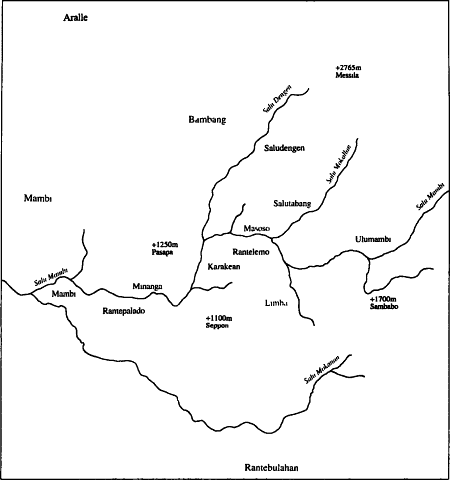
The Salu Mambi headwaters.
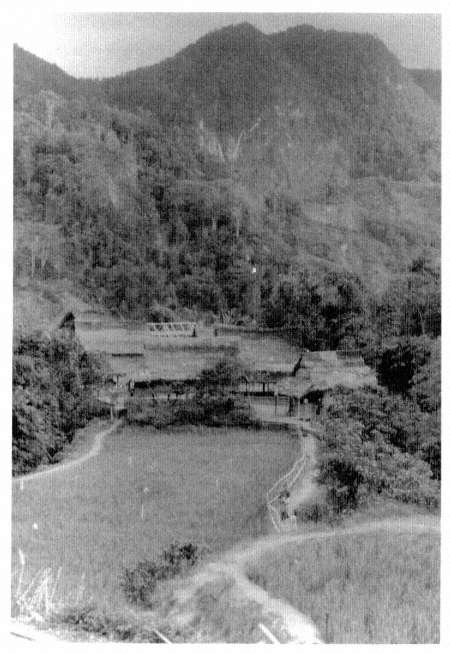
A hamlet in Bambang, at the headwaters of the Salu Mambi. 1984.
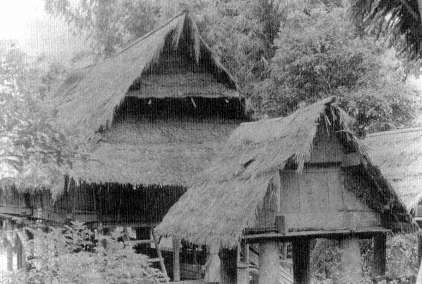
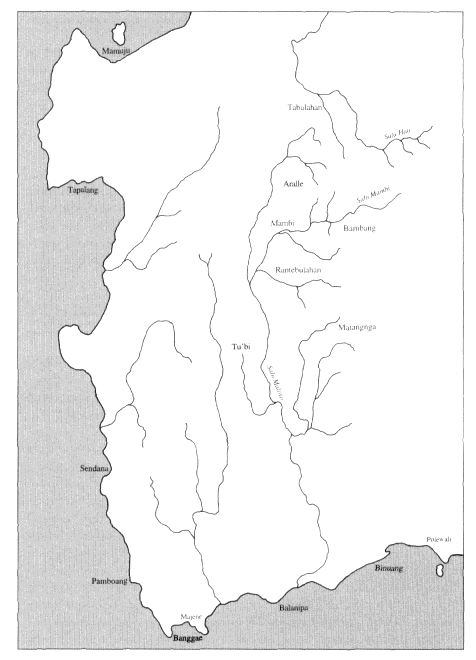
The regional adat territories: "The Seven Headwaters" and "The Seven Rivermouths"

while away on his journey, each headhunter prepares a tambolâ flute and decorates it with plaited areca or sugar-palm leaves. The "voice" of the flute releases the mappurondo community from mourning. 1984.
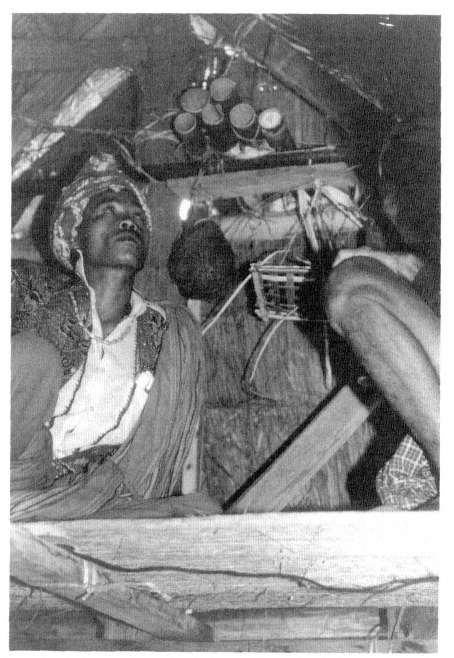
Ambe Sope in the upstream, gable-end loft of a house, preparing to present the
head to the debata (spirits). The head hangs enclosed in a dark woven pouch (center).
Beside it hangs a rack for offerings. and above it rest the tambolâ flutes frown a prior
headhunting ritual. 1984.

The tomatuatonda' ("the elder of the village") comes out to greet the return-
ing cohort of topangngae (headhunters). He carries two torches: the one blazing in
his right hand is the first fire to be rekindled in the village following the return of the
topangngae. 1985.

Pua' Soja, 1983.
Sumber
book : Showing signs of violence: the cultural politics of a twentieth-century headhunting ritual

A hamlet in Bambang, at the headwaters of the Salu Mambi. 1984.

A single-hearth house and rice barn in Bambang. A woman works in the yard
between them. 1984. 
The regional adat territories: "The Seven Headwaters" and "The Seven Rivermouths"

while away on his journey, each headhunter prepares a tambolâ flute and decorates it with plaited areca or sugar-palm leaves. The "voice" of the flute releases the mappurondo community from mourning. 1984.

Ambe Sope in the upstream, gable-end loft of a house, preparing to present the
head to the debata (spirits). The head hangs enclosed in a dark woven pouch (center).
Beside it hangs a rack for offerings. and above it rest the tambolâ flutes frown a prior
headhunting ritual. 1984.

The tomatuatonda' ("the elder of the village") comes out to greet the return-
ing cohort of topangngae (headhunters). He carries two torches: the one blazing in
his right hand is the first fire to be rekindled in the village following the return of the
topangngae. 1985.

Pua' Soja, 1983.
Sumber
book : Showing signs of violence: the cultural politics of a twentieth-century headhunting ritual

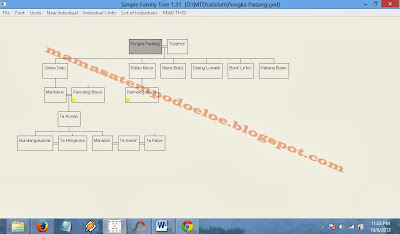
Komentar ini telah dihapus oleh pengarang.
BalasHapusSangatlah membantu dijaman teknologi sekarang selaian memperkenalkan budaya kita,anak cucu,cicit dari mendiang para leluhur kita bisa membaca atau paling tidak mengetahui sejarah kapoeng kita.Dan saya bangga jadi anak to mamasa walau pun berada dirantau orang.
BalasHapus